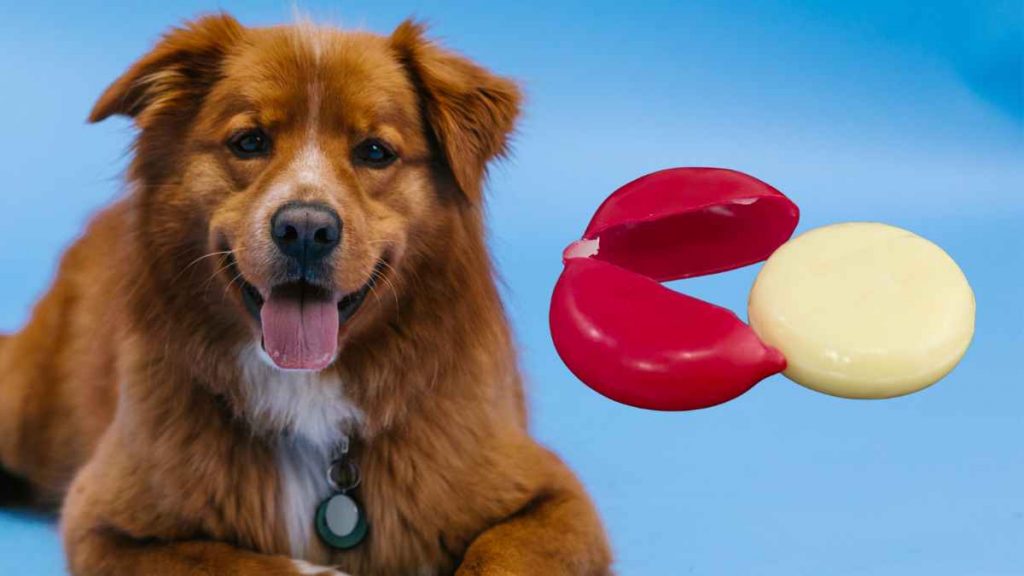As pet owners, we often find ourselves questioning what human foods are safe and appropriate to share with our furry friends. In this article, we will delve into the topic of whether dogs can safely consume Babybel cheese. Understanding the nutritional needs of dogs and the potential benefits or risks associated with feeding them specific foods is crucial in providing a balanced and healthy diet for our beloved pets.
Table of Contents
Understanding Babybel Cheese
Babybel cheese is a popular snack known for its small, round shape and distinctive red wax coating. It is made from pasteurized cow’s milk and has a semi-soft texture. While Babybel cheese is primarily consumed by humans, let’s explore its composition and nutritional value.
Dietary Considerations for Dogs
Before diving into whether dogs can eat Babybel cheese, it is essential to understand their unique dietary requirements. Dogs are omnivores, meaning they can consume a variety of animal and plant-based foods. However, not all human foods are safe for dogs, and some can even be toxic to them.
Can Dogs Eat Babybel Cheese?

The safety of feeding Babybel cheese to dogs depends on various factors. While small amounts of cheese may not necessarily harm dogs, it is crucial to evaluate the potential benefits and risks associated with their consumption.
Potential Benefits of Babybel Cheese for Dogs
Babybel cheese contains essential nutrients, such as protein and calcium, which are beneficial for dogs. Protein is essential for muscle growth and repair, while calcium supports strong bones and teeth. However, it is essential to consider alternative sources of these nutrients that are specifically formulated for dogs.
Can Puppies Eat Babybel Cheese?

Puppies have specific dietary requirements that differ from adult dogs. While small amounts of Babybel cheese may not necessarily harm puppies, it is generally recommended to avoid feeding them cheese. Puppies have sensitive digestive systems, and the high-fat content of cheese can lead to gastrointestinal issues such as diarrhea.
Risks and Concerns
Despite potential benefits, there are risks and concerns associated with feeding Babybel cheese to dogs. Some dogs may be lactose intolerant, leading to digestive issues like diarrhea or upset stomachs. Additionally, Babybel cheese is high in fat, which can lead to weight gain and other health problems in dogs.
Moderation and Alternative Options
When it comes to feeding cheese or any human food to dogs, moderation is key. While small amounts of Babybel cheese may not pose an immediate risk, it should not be a significant part of a dog’s diet. Instead, it is advisable to opt for dog-friendly snacks or treats that are specifically formulated to meet their nutritional needs.
Guidelines for Feeding Babybel Cheese to Dogs
If you still decide to offer your dog a taste of Babybel cheese, it is essential to follow specific guidelines. Introduce it gradually into their diet, starting with small portions to assess any adverse reactions. Consult your veterinarian to determine suitable portion sizes and frequencies based on your dog’s breed, age, and overall health.
FAQ
Can Babybel cheese be harmful to dogs?
While Babybel cheese is not inherently toxic to dogs, it can cause digestive issues and potential weight gain due to its high-fat content. Some dogs may also be intolerant to lactose found in dairy products.
What are the potential benefits of feeding Babybel cheese to dogs?
Babybel cheese provides protein and calcium, which are essential for a dog’s overall health. However, there are alternative dog-specific food options that can fulfill these nutritional needs more effectively.
How much Babybel cheese can I give my dog?
It is recommended to give small, occasional amounts of Babybel cheese to dogs, keeping in mind their size, breed, and individual dietary requirements. Consult your veterinarian for specific portion guidelines.
Are there any specific risks for certain dog breeds?
Some dog breeds, particularly those prone to weight gain or with known lactose intolerance, may be at higher risk of adverse effects from consuming Babybel cheese. Consulting your veterinarian can help assess these risks based on your dog’s breed.
Can dogs be allergic to Babybel cheese?
Yes, dogs can develop allergies to various types of food, including cheese. If you notice any signs of an allergic reaction, such as itching, swelling, or difficulty breathing, discontinue feeding Babybel cheese and consult your veterinarian.
Can Babybel cheese cause digestive problems in dogs?
Yes, the lactose and high-fat content in Babybel cheese can cause digestive issues in dogs, including diarrhea, gas, and upset stomachs. Monitoring your dog’s reaction to cheese and adjusting their diet accordingly is essential.
Are there any alternative cheeses that are safer for dogs?
Yes, there are dog-friendly cheeses available that are specifically formulated with lower lactose content and suitable fat levels for dogs. These options can be a safer alternative to Babybel cheese when it comes to sharing a cheesy treat with your furry friend.
Should I consult my veterinarian before giving Babybel cheese to my dog?
It is always recommended to consult your veterinarian before introducing any new food into your dog’s diet. They can provide personalized advice based on your dog’s specific needs and health conditions.
Conclusion
While dogs can consume small amounts of Babybel cheese without immediate harm, it is important to consider the potential risks and benefits. However, it is generally advised to opt for dog-specific foods and treats that cater to their nutritional needs. Remember, the key to a healthy and balanced diet for your dog lies in consulting with your veterinarian and making informed choices based on their individual requirements.
You May Also Like:

